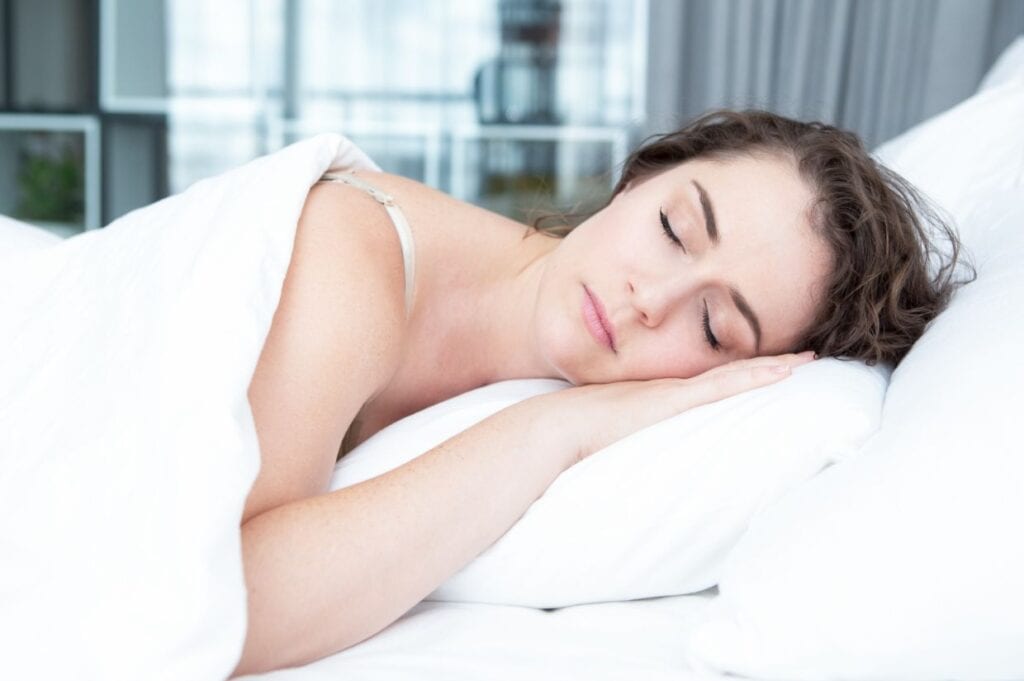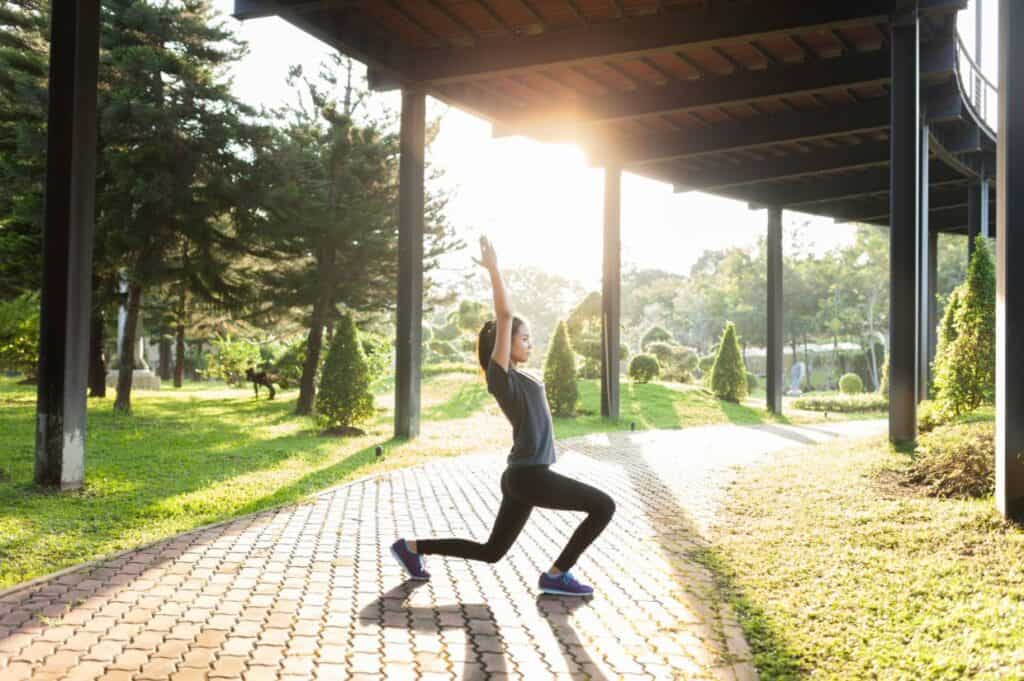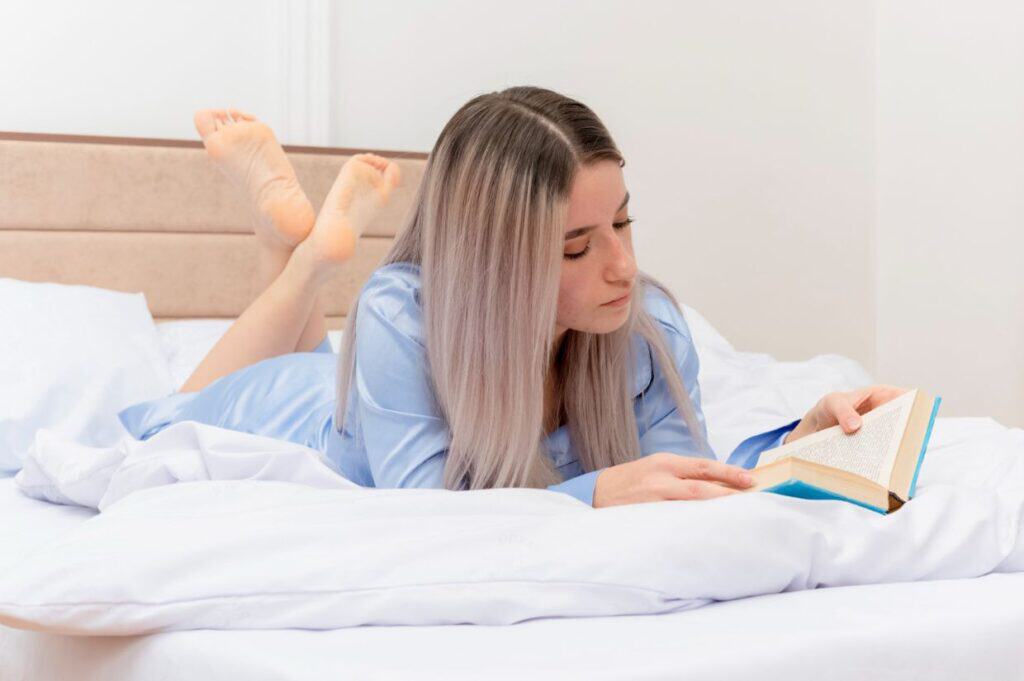The phrase “sleep like a baby” isn’t ideal for describing good sleep because, as any new parent knows, babies often wake up multiple times a night, making it far from the peaceful rest it implies. Everyone in the family needs to sleep and kids tend to do this easily while adults struggle to get a good night’s rest. These 10 tips for adults will have you sleeping like a log in no time.

10 tips for getting good quality sleep as an adult
Preparation for bedtime begins long before turning in. Try implementing these tips throughout your day for the next few weeks and see if your sleep improves.
Re-evaluate napping
Taking long naps during the day may make it harder to sleep at night. Catnapping for 15 to 20 minutes can be refreshing and energizing, but if you are sleeping longer than that, consider ways to help stay awake during the day.
Limit caffeine after noon
Drinking caffeine later in the day can disrupt your body’s natural sleep-wake cycle by blocking adenosine, the chemical that promotes sleepiness, making it harder to fall asleep or stay asleep. Even if you don’t feel its effects immediately, it can reduce the quality and depth of your sleep.
It can be tempting to reach for the coffee maker when you feel tired in the afternoon, but cutting out some caffeine, rather than drinking more will help you sleep better at night. If you are in the habit of drinking multiple cups of coffee a day, try switching to half-caff or decaf for the cups in the afternoon.
Eat a filling dinner and limit post-dinner snacks
It is hard to sleep when your tummy is growling, but trying to digest a lot of food is not ideal for quality sleep, either. If you are eating right before bed, try bumping that up a few hours so your body can work on sleeping and not digesting food at bedtime. Protein-rich snacks are a great idea.
Exercise, but do it earlier in the day
Exercising in the morning is often better than working out right before bed because physical activity increases your heart rate, body temperature and adrenaline levels, all of which can make it harder to relax and fall asleep.

Morning exercise helps align your body’s internal clock, boosts energy levels and promotes better focus throughout the day. On the other hand, evening workouts can interfere with the production of melatonin, the hormone responsible for signaling your body that it’s time to sleep. Try these desk exercises to get a little movement in midday.
Take a warm bath
Taking a bath before bed can promote better sleep because it helps relax both the body and mind. The warm water raises your body temperature, and when you step out of the bath, your body cools down, mimicking the natural drop in body temperature that occurs when you’re preparing for sleep. Additionally, the calming effect of the bath can reduce stress and tension, making it easier to fall asleep and enjoy deeper rest.
Sleep on clean sheets and a comfy mattress
Having clean sheets and a good mattress significantly enhances sleep quality because they directly impact comfort, hygiene and overall relaxation. Clean sheets contribute to a fresh, soothing environment, free from allergens, dust mites or irritants that could disrupt sleep.
A good mattress provides proper support, aligning your spine and reducing pressure points, which can prevent discomfort and improve sleep posture. Together, they create an optimal sleep environment, helping you fall asleep faster, stay asleep longer and wake up feeling more rested.
Use white noise
White noise helps mask disruptive background sounds, creating a consistent auditory environment that promotes relaxation. By drowning out sudden noises like traffic, footsteps or loud neighbors, white noise can prevent disturbances that might wake you up or disrupt your sleep cycle.
White noise also promotes a sense of calm and helps to regulate the brain’s response to external stimuli, making it easier to fall asleep and stay asleep. For many, the gentle, steady sound of white noise becomes a comforting sleep cue that signals it’s time to rest.
Put your worries aside by journaling before bed
Journaling before bed helps clear your mind and reduce stress, making it easier to unwind and prepare for sleep. Writing down your thoughts, worries or even things you’re grateful for can release pent-up emotions, preventing them from interfering with your ability to relax.
Journaling also allows you to reflect on your day, helping create a sense of closure and ease any lingering tension. By creating a peaceful mental space, journaling can signal your brain that it’s time to transition from the busyness of the day to a more restful state.
Read before bed
Reading before bed allows you to escape into another world, providing a mental break from daily stresses. It engages your imagination and focus, which can help distract you from worries and promote relaxation.

The act of reading also slows down your brain activity, especially when reading a fiction book, making it easier to transition into a more restful state. Additionally, reading a physical book, instead of using a screen, reduces exposure to blue light, which can interfere with the production of melatonin, the hormone that helps you fall asleep.
“I’ve always had trouble sleeping, but the number one culprit for a bad night’s sleep these days is my phone. I have a rule that I won’t look at it an hour before I go to sleep or my mind will be stimulated. I have to remember to set my alarm early because even a glance at a message can lead to sleepless nights.”
— Mandy Applegate, My Reliable Recipes
Silence your phone
Silencing your phone for sleep is helpful because it eliminates distractions and prevents interruptions that can disrupt your rest. Notifications, messages or calls can trigger your brain to stay alert or become anxious, making it harder to relax and fall asleep. Constant exposure to your phone’s screen or sounds can also increase stress and prevent your body from fully winding down.
By silencing your phone, you create a peaceful, uninterrupted environment that supports deeper sleep and helps you avoid the temptation to check your device, which can delay your bedtime.
Gena Lazcano is the creator, writer and recipe creator at Ginger Casa. She loves her air fryer and pressure cooker and loves creating new recipes to share. She is also a self-proclaimed houseplant expert and a lover of all things garden related.
This article originally appeared on Ginger Casa.